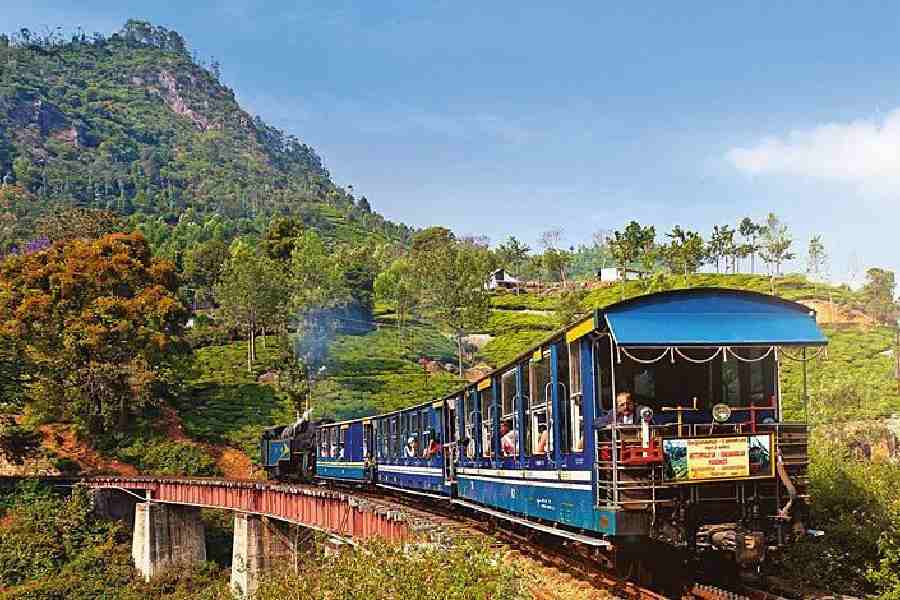Unequal treatment
Sir — In a recent judgment, the Supreme Court commuted the death sentence given by the Delhi High Court to Santosh Singh in the Priyadarshini Mattoo case to life term (“Rapist leeway in one, acquittal in another”, Oct 7). Singh, the son of a former IPS officer, had been convicted of the rape and murder of Mattoo. The affluent and the powerful often get away with lighter sentences in this country. They are even treated leniently and provided with better facilities in prison. It would not be surprising if Singh is let off after a few years for ‘good conduct’.
The apex court’s decision on Singh came 14 years after the crime was committed. There had not been so much deliberation in the case of the less influential Ravji, alias Ram Chandra, who had been convicted of murdering his family. He was executed within three years of the crime being committed. Documents recently accessed under the Right to Information Act reveal that the then president, Shankar Dayal Sharma, rejected his mercy petition in six days. The Indian judiciary does not seem to treat the rich and the poor equally.
Yours faithfully,
Subhash Chandra Agrawal, Delhi
Sir — The Priyadarshini Mattoo murder case seems to have yielded three different verdicts in three courts. The accused, Santosh Singh, was acquitted by a trial court, handed out a death sentence by the Delhi High Court, which was then lessened to a life term by the apex court. It is ironic that this process took almost 14 years while Singh’s life sentence will also amount to 14 years. If a killer like Singh can go scot-free ultimately, we should perhaps abolish the death penalty altogether.
Yours faithfully,
Bidyut Kumar Chatterjee, Faridabad
Sir — The apex court’s decision to give a life sentence to the killer of Priyadarshini Mattoo has not gone down well with the victim’s family as well as with a large section of the public. Perhaps the objections have less to do with the judgment itself than with the way life sentences are carried out in this country, especially in the cases of influential people. To begin with, the sentence lasts for only 14 years. With the right connections, one can make this term fairly comfortable.
Recently, the notorious Manu Sharma, who is supposed to be serving a life term for the murder of Jessica Lal, was seen in a nightclub when he was out on parole. The flawed execution of sentences is indeed cause for concern. But, in all fairness, the courts can only go by the facts of the cases and judge accordingly.
Yours faithfully,
R. Narayanan, Ghaziabad
More doubts
Sir — In his article “Open sesame” (Oct 6), Krishnan Srinivasan has argued that India should not be made a permanent member of the United Nations security council just yet.
But India is the world’s largest democracy, the second most populous nation, a formidable economic power, and a regular contributor to UN peace-keeping missions. Under Jawaharlal Nehru, India played a significant role in the Non Alignment Movement. The country has also been vocal on several other issues of international importance. Given its strategic position in the global arena, it is only natural that India should become a permanent member of the security council.
Yours faithfully,
Saroj Upadhyay, Calcutta
Sir — Even as India scrambles for a place in the UN security council, there is growing doubt about the UN’s effectiveness and relevance as an international body in today’s world. This is mainly because it has completely failed to maintain peace and stability in the world.
The UN was powerless to stop the conflicts in Afghanistan, Iraq, Africa and West Asia, not to mention the tragedies in Bosnia and Kosovo. The peace-keeping missions sent by the UN to trouble spots have been of little help.
The UN needs restructuring on a massive scale. The organization has become a behemoth of unmanageable proportions. Even though issues are discussed and debated in meetings, this does not result in effective action.
What is perhaps most unacceptable is that the UN has become completely subservient to the United States of America. The headquarters of the UN general assembly should be shifted out of New York to a more neutral location. The US is able to dictate terms since it is the largest financial contributor to the UN. It is time the UN finds alternative sources of financial support. The rich Gulf countries or other wealthy nations could help swell the flow of funds to UN coffers.
This shift could also help improve India’s chances of becoming a permanent member of the security council. In recent times, Washington has shown scant support for India’s claims to permanent membership. The five permanent members of the council, it would appear, have no intention of sharing their power.
Yours faithfully,
J.K. Dutt, New York










